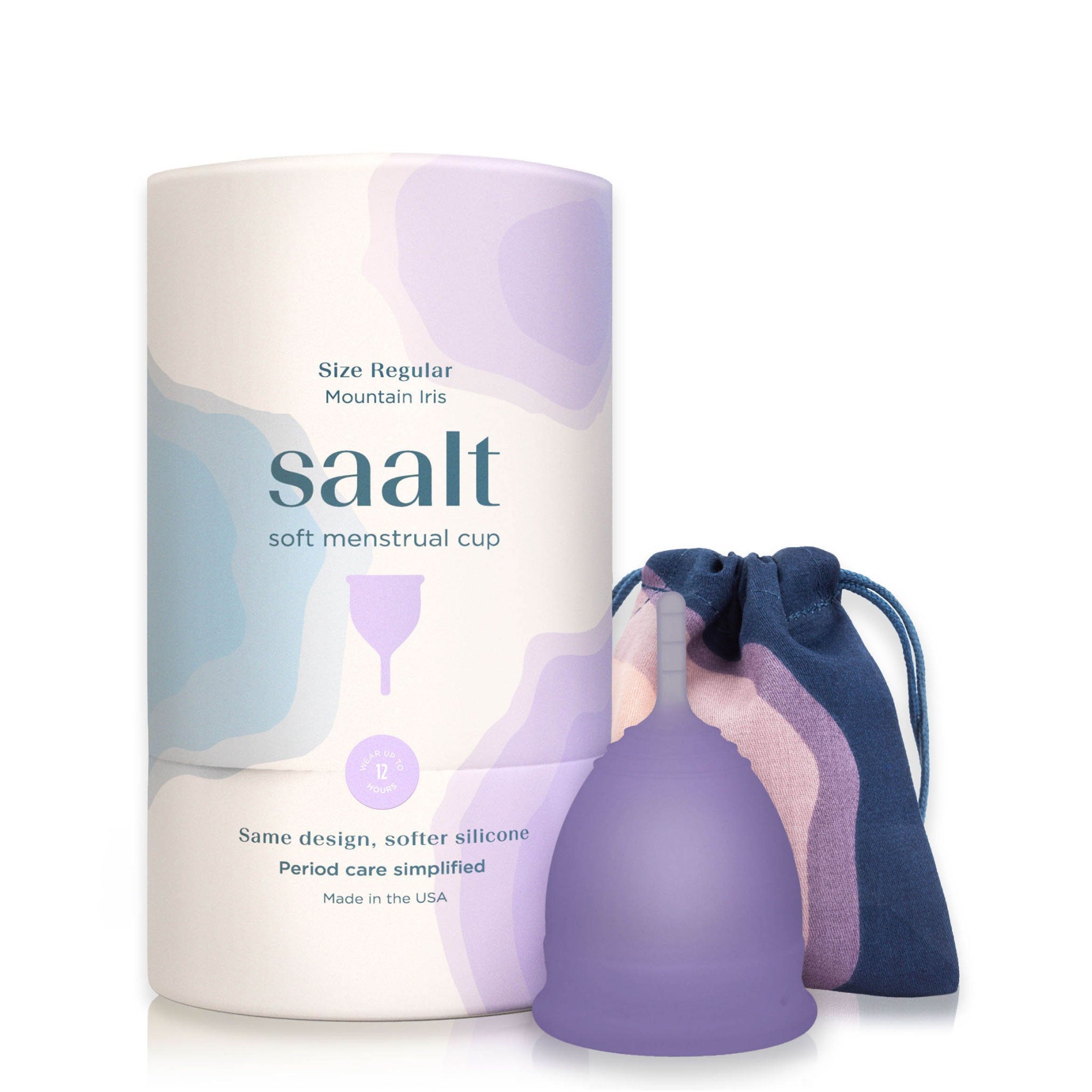Key Takeaways:
- How Hormonal Shifts Influence Nausea: Estrogen, progesterone, and prostaglandins impact digestion and gut sensitivity during the luteal phase, which can lead to queasiness or appetite changes before menstruation begins.
- PMS and PMDD Symptoms Vary: Premenstrual nausea may show up alone or alongside mood swings, fatigue, or physical discomfort, and can be more intense for those living with Premenstrual Dysphoric Disorder (PMDD).
- Daily Routines That Help Ease Premenstrual Nausea: Balanced meals, hydration, gentle movement, and symptom tracking are practical ways to respond to PMS nausea. If symptoms disrupt your life, checking in with a provider can lead to better care and clarity.
It’s a familiar scene for many of us: As our period approaches, we catch ourselves feeling more than just irritable or bloated. Maybe there’s a subtle wave of queasiness, or perhaps persistent nausea before your period, that makes everyday tasks feel cumbersome. Millions of people who menstruate notice shifts in their bodies each month, and these changes can often feel unpredictable, even frustrating, especially when they interrupt our routines and sense of comfort.
At Saalt, we believe in normalizing every part of period care—yes, even the less-talked-about symptoms. In this article, we’ll break down why some of us experience nausea before our periods, what’s happening in our bodies during this time, and how you can find relief and reassurance.
Hormonal Changes and Their Impact on Nausea
Nausea before your period can feel sudden, disorienting, and hard to pin down. While you prep your bag with a menstrual cup or lay out your period underwear, there’s often a less visible cause at play: the natural hormonal rhythm guiding your body from one cycle phase to the next.
Estrogen and Progesterone Fluctuations
Hormones are always in motion throughout your cycle. Estrogen and progesterone, your two primary reproductive hormones, rise and fall in a tightly choreographed sequence. After ovulation, progesterone levels increase to help prepare your uterus in case of pregnancy. If fertilization doesn’t happen, estrogen and progesterone levels dip sharply just before your period starts.
This hormonal drop can lead to a variety of physical symptoms. You may even wonder, “Can you feel nauseous before your period?” And for many, the answer is yes. The timing matters here: most people notice queasiness in the late luteal phase, that final stretch before menstruation begins. That hormonal crash may feel sudden, which can explain why the discomfort often sneaks up without much warning.
How Hormones Affect Digestion
These hormone shifts influence more than your reproductive system. They also interact with your digestive tract, an area packed with hormone receptors and nerves. For some, this connection shows up as slowed digestion, which leads to bloating and a sensation of fullness. Others experience heightened sensitivity to smells or stomach acid buildup, both of which can spark queasiness. If you’ve ever turned down your go-to coffee or suddenly felt sick while riding the bus, hormonal changes might be the reason.
Prostaglandins and Their Role in Premenstrual Symptoms
In addition to estrogen and progesterone, your body releases prostaglandins during the lead-up to your period. These chemical compounds help the uterus contract so it can shed its lining. While that’s a necessary part of menstruation, prostaglandins can also affect nearby muscles, including those in the stomach and intestines.
According to Cleveland Clinic, higher levels of prostaglandins may cause digestive symptoms like cramps, nausea, or even diarrhea. If your period tends to come with stomach trouble, prostaglandins could be behind it. The stronger the release, the more likely you’ll feel those effects outside of the uterus, too.

PMS Symptoms Are Real, And They Deserve Attention
The days leading up to your period can bring more than mood swings or the occasional cramp. For many, PMS includes a spectrum of physical and emotional shifts that build slowly, then crash in all at once. From nausea to fatigue to the kind of bloating that makes jeans feel stiff by noon, premenstrual symptoms are a real part of the cycle—and they don’t always get the recognition they deserve.
PMS, or premenstrual syndrome, usually begins a week or two before bleeding starts. Hormones start to drop, sending ripples through systems that regulate mood, digestion, sleep, and energy levels. Some of the more common physical signs include tender breasts, headaches, appetite changes, and sleep disruptions. For others, PMS nausea takes center stage, leaving meals unfinished or routines interrupted.
Emotionally, PMS can come with brain fog, irritability, sensitivity, or the sense that you’re wearing your nerves on the outside. These changes are linked to real hormonal fluctuations, and how they affect your brain and body depends on your chemistry. What’s important to remember is that these symptoms aren’t exaggerations or something to brush off. They show up in different ways for each of us. Whether that means reaching for moisture wicking underwear or setting aside time to rest, the care you give yourself matters.
PMDD and the Intense Side of Premenstrual Symptoms
Some cycles hit harder than others. When physical discomfort blends with emotional distress, and the days leading up to your period feel almost unrecognizable, you might be dealing with more than typical PMS. Premenstrual Dysphoric Disorder (PMDD) is a condition that impacts roughly 2 to 6% of people who menstruate.
While PMS might come with tiredness, irritability, or mild nausea, PMDD can bring on a heavier mix: sudden mood swings, tearfulness, anxiety, difficulty concentrating, and a feeling of disconnection from yourself or others. Physically, you might experience joint pain, dizziness, headaches, bloating, and intense premenstrual nausea that doesn’t let up, even after eating light or hydrating well. When feeling nauseous before your period becomes a consistent issue paired with emotional strain, it can be tough to get through the day.
The root cause of PMDD isn’t fully understood, but research points to a heightened sensitivity to hormone changes in the luteal phase, the time between ovulation and menstruation. That hormonal shift may impact serotonin, a neurotransmitter tied to mood and digestion. For those of us with PMDD, this response can send both the gut and the brain into a tailspin.

Lifestyle Changes to Prevent Nausea Before Periods
Our cycles are as unique as we are, and feeling nauseous before periods is one symptom many of us share, even if we experience it differently. While everybody reacts differently to hormonal changes, there are grounded, practical steps we can take together to help minimize discomfort.
Choose Balanced Meals and Stay Hydrated
A sharp dip or spike in blood sugar can make pre-period nausea feel more intense. Pairing complex carbohydrates with lean proteins and healthy fats throughout the day may help keep your energy steady and reduce queasiness. Sipping water or herbal teas like peppermint or ginger can also help soothe an unsettled stomach. Many of us don’t realize how much dehydration can amplify symptoms.
Cut Back on Caffeine and Common Irritants
For some of us, that second cup of coffee or energy drink can tip the scale toward feeling queasy. Consider scaling back a few days before your period begins. Foods that are spicy, greasy, or highly processed can be tough on your stomach during this time, so tuning in to your body’s cravings and reactions matters.
Eat Smaller, More Frequent Meals
Large meals can put extra pressure on your digestive system, especially when hormonal fluctuations are already in play. Instead of loading up at three big meals, aim for smaller portions spread throughout the day. When hormones are shifting, large meals can place added pressure on digestion.
Prioritize Movement That Feels Good
You don’t need an intense workout to feel better. Gentle movement like walking, stretching, or doing yoga at home can ease tension and support digestion. Even a few minutes outside can shift how your body feels and reconnect you with your breath.
Track Your Symptoms
Writing down symptoms, meals, and stress levels helps identify patterns over time. You may notice that certain foods or situations affect how your body feels before your period. A symptom journal puts more insight in your hands and gives you space to try out what feels manageable. Over time, small shifts in how you care for yourself can lead to more grounded, consistent cycles.

When to See a Healthcare Provider
If nausea before your period is an occasional visitor and doesn’t disrupt your daily life, it’s likely part of your body’s natural cycle. But if you’re finding that this queasy feeling grows severe, lingers long after your period starts, or comes paired with other concerning symptoms, such as vomiting, intense abdominal pain, unexplained weight change, or dizziness, it might be time to check in with a healthcare provider.
- Nausea That Lingers Past Your Period: When queasiness sticks around long after your period begins, it may point to something beyond hormonal shifts.
- Vomiting or difficulty keeping food down: Regular vomiting before or during your period can lead to dehydration or other complications and should be addressed right away.
- Severe abdominal or pelvic pain: Intense cramping or sharp pain that limits movement or keeps you from daily activities might signal conditions like endometriosis or ovarian cysts.
- Unexplained weight changes or appetite loss: Sudden shifts in weight, especially when paired with PMS nausea, may reflect underlying hormonal or digestive issues.
- Dizziness, fatigue, or fainting spells: These symptoms may indicate an imbalance that needs medical evaluation, particularly when they occur alongside nausea.
- Disruption to work, sleep, or school: When symptoms get in the way of showing up fully in your life, reaching out is an act of care, not overreaction.
Final Thoughts
It’s completely normal to have questions when you experience nausea before your period. This sensation is more common than we sometimes realize, and talking about it openly helps us all feel less alone. As our bodies move through hormonal shifts each cycle, symptoms like nausea, cramping, and fatigue can become part of our own lived experience. But understanding why they’re happening helps us respond with the care and support we deserve.
At Saalt, we believe in making every stage of your period more comfortable, from the small details to the big picture. By choosing products that prioritize comfort and sustainability, we support our bodies and our planet. If you’re exploring new ways to manage period symptoms or want to simplify your routine with options like a period disc or period underwear, remember that finding what works for you is a journey worth honoring.
Read more
- How is a Menstrual Disc Different Than a Tampon?
- Are Reusable Menstrual Products FSA/HSA Eligible?
- The Path to Menstrual Freedom: How Saalt Is Answering the Call
Frequently Asked Questions About Nausea Before Your Period
Can you get nauseous before your period, and when should it be a concern?
Yep! Feeling nauseous before your period is common, but tracking how long it lasts and what it's paired with (like vomiting, dizziness, or sharp pain) can help you decide when it’s time to speak with your healthcare provider.
How can I differentiate between menstrual nausea and other types of nausea?
Menstrual nausea is often closely linked to your cycle, typically starting a few days before your period and easing once menstruation begins. If your queasiness regularly follows this pattern, hormones are likely at play. Other types of nausea, such as those from food poisoning, stomach bugs, or migraines, tend to have different triggers and may come with additional symptoms like fever or vomiting unrelated to your cycle. Keeping a symptom journal can help you spot trends and patterns.
Does premenstrual nausea indicate a more serious problem?
For most of us, premenstrual nausea is a normal, though uncomfortable, part of the hormonal shifts leading up to a period. However, intense, persistent, or worsening nausea could signal something else, such as endometriosis, gastrointestinal issues, or hormonal imbalances. If nausea disrupts your life or comes with new symptoms like severe pain or weight loss, check in with a healthcare professional.
Can stress exacerbate premenstrual nausea?
Absolutely! Stress and anxiety can intensify nausea in the lead-up to your period. The body’s stress response involves hormones like cortisol and adrenaline, which can increase gut sensitivity and aggravate digestive symptoms, including nausea. Practicing stress-reducing routines and getting plenty of rest during your premenstrual window can sometimes help.
Can birth control pills help alleviate premenstrual nausea?
Some find that hormonal contraceptives ease premenstrual symptoms by leveling out hormone fluctuations throughout the cycle. That said, birth control can also cause nausea. If you’re curious about managing nausea with birth control, it’s best to have an open conversation with a trusted healthcare provider to weigh your options.
How does pregnancy-related nausea differ from premenstrual nausea?
While both types of nausea can feel similar, pregnancy-related nausea (“morning sickness”) often lasts longer and may be accompanied by symptoms like a heightened sense of smell, new food aversions, or missed periods. If your cycle is late and you’re experiencing persistent nausea, it’s a good idea to take a pregnancy test or speak to your healthcare provider.
How do I insert a menstrual disc?
Inserting a menstrual disc can feel a little unfamiliar at first, but with the right guidance and a few tries, it quickly becomes second nature. The key is to find a relaxed position, fold the disc for easy insertion, and slide it back toward the vaginal fornix. Once it’s tucked into place, you’ll want to tuck the front rim behind your pubic bone to keep it secure. For step-by-step tips, check out our how to insert menstrual disc guide.
Sources:
- Tiefer, L., Romans, S., & Yonkers, K. (2024). The role of serotonin in premenstrual dysphoric disorder. Journal of Affective Disorders. https://doi.org/10.1016/j.jad.2024.03.076
- Cleveland Clinic. (2023, October 25). Prostaglandins. Cleveland Clinic. https://my.clevelandclinic.org/health/articles/24411-prostaglandins







